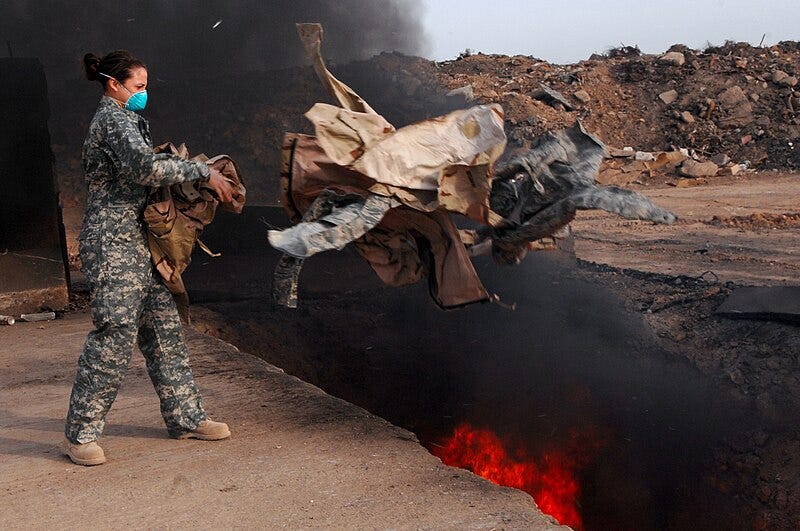So, a cable news host took to the airwaves, pleading for a friend. A veteran. About to lose their job thanks to some DOGE budget cuts. They may have already lost it. I don't know, I don't watch. But I caught the appeal, and it got me thinking. I was quick to find this veteran's plight was not unique.
It took me minutes to find these headlines:
He survived four tours in Iraq and Afghanistan. DOGE just fired him.
A veteran doing critical work at the Phoenix VA was fired overnight.
Service-disabled, veteran-owned small businesses are taking a disproportionate hit so far.
How many more didn't make the news? Don't have a friend on TV?
Thinking about myths. Thinking about lies. Thinking about how much we love to pat ourselves on the back and how much we love the sound of our voices when we say, "We support the troops." Corporations market off it. Politicians campaign off it.
Do we care?
We championed burn pits once. I oversaw a series of cable news segments addressing the issue. The issue? The garbage fires at U.S. bases, burning everything—plastic, chemicals, God knows what. The thick black smoke curled into the air, seeping into the lungs. The sickness that followed. The suffering. The dismissals from the government. The denials. The veterans were left to fend for themselves.
Jon Stewart testified before Congress, lots of people made noise, and eventually, legislation was passed. But guess what? One of the things on the DOGE chopping block? Veteran support.
Then, the VA halts the cuts. Playing games with lives. Why were they even entertained in the first place? What will happen? That it was even considered tells the tale.
It's not new. Vietnam veterans came home and got spat on. Literally in some cases. Figuratively in many more. Either way, they suffered in silence. Agent Orange—the burn pits of its day. A chemical nightmare sprayed across the jungles, seeping into skin, into lungs. It caused cancer. The government refused to acknowledge it. Refused to treat it. The same old story.
According to the IRS, there are 45,000 non-profits serving veterans. I've volunteered with a few. But this arena is ripe with theft and fraud. I reviewed a number of academic papers on charities.
One group raised $20 million but spent less than 5% on veterans. Another stole over $100 million, creating fake charity chapters and leaders. Another funnelled nearly all of its $29 million into lavish executive perks.
One director took $200,000 in donations and spent it on a luxury car and casino trips. A for-profit college used deceptive marketing to enroll thousands of veterans, drained their GI Bill benefits, and then shut down under a $1.1 billion fraud lawsuit.
One raised $56 million but spent almost all of it on fundraising firms, not veterans. Another claimed to provide medical care but spent 95% of donations on telemarketers. One took $6 million in federal funds and had no record of how it was used. Another simply pocketed donations and lived in luxury.
I removed the names because who cares who did it—you can find out. The point is that it's widespread. They play on our patriotism and our respect for personal gain. There are ways to check a non-profit's legitimacy. There are many good ones. Do so before you give to any cause.
But we move on. We're good at that. Vietnam fades into the War on Terror, Iraq, and Afghanistan. A war that lasted two decades. A war where people got rich. But the ones who went? Who fought? Who bled? There are over three million post 9/11 veterans.
We love the theater of patriotism. The parade, the flyovers, and the somber faces at sporting events. We stand. We salute. We nod along when someone thanks a veteran for their service. But when the flags come down, the music stops, and cameras cut, we, all too often, disappear.
What matters isn't what we say once or twice a year. What matters is showing up in the dark of winter, in the heat of summer, when there's no parade, three-day weekend, or barbecue.
I've met hundreds of veterans. Maybe thousands. I've spent years documenting them—from World War II to the War on Terror. I've seen what service does to a person. The good. The pride. The sense of purpose.
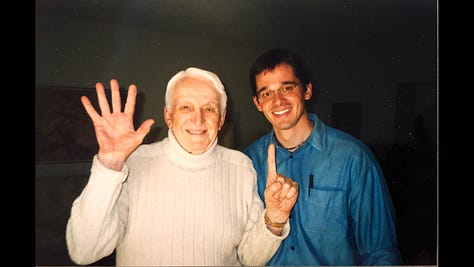
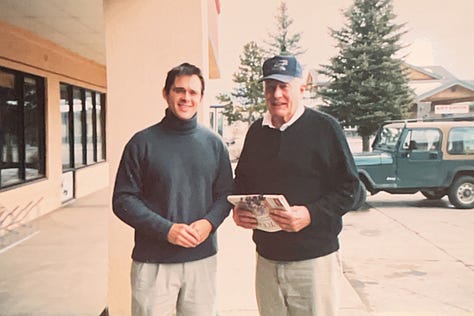
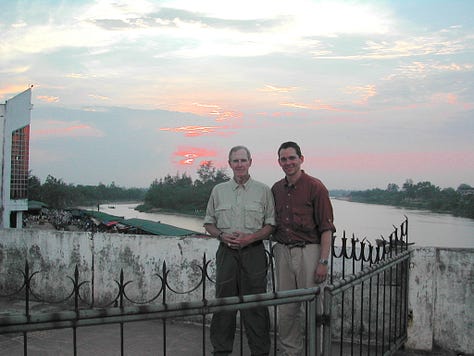
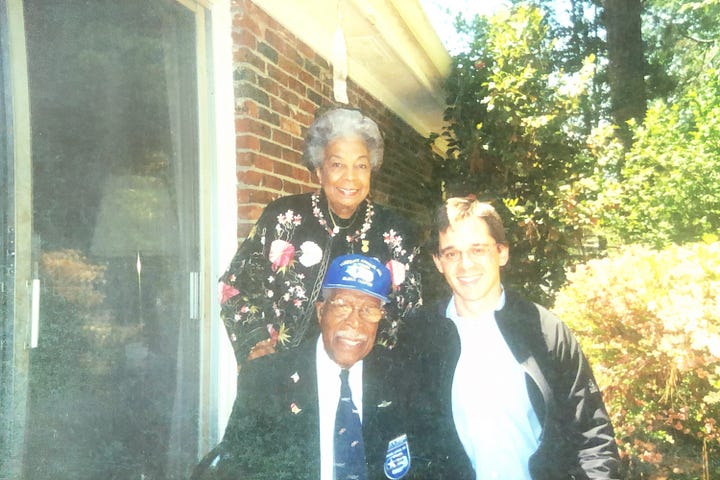
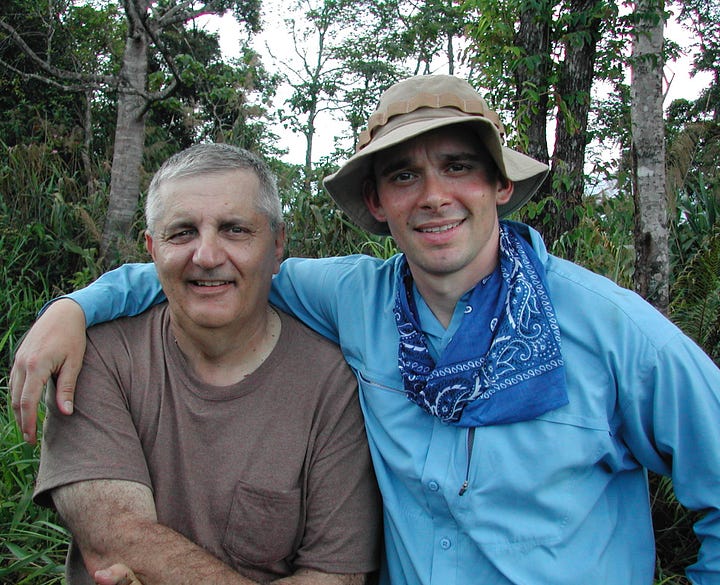
The bad. The most minor wounds— like being away from home. The biggest—watching a friend die. Losing a limb. Losing a mind. Losing the will to keep going.
I interviewed a World War Two veteran once. He told stories 60 years on from the war like he was reliving the moments; his voice trembled, and tears appeared in his eyes as he talked about losing friends, the pain, and the hardship.
After the interview, his wife walked up to me. She had been listening in another room. She took my hands, looked me in the eyes, and said, "Martin, I finally understand."
Decades of loving marriage, and he never shared. She was left to wonder. Did he wake at night? Become upset by things she didn't understand? I didn't pry. I didn't need to know what had happened. Her voice, it ached with relief.
On another occasion, I interviewed a Korean War veteran; he had never talked about his time at war. He wept as he recounted taking cover under fire. He relived lying there in the mud, staring into the eyes of another American. A dead American.
After it aired, his son contacted me, he was furious. I had humiliated his father. I was mortified.
A week passed, and the son contacted me again to apologize. Since his father's TV appearance, veterans his father had served with, and others he didn't know had contacted him. Many did so to thank him for revealing his pain, for showing the world what war does to us, and how the pain lingers. He helped ease their pain.
There's a quote on the wall of the D-Day Museum in New Orleans. From someone you don't know.
It reads - "One cannot go to war and come back normal."
Freedom isn't free. That's the bumper sticker, right? We like saying it. We like the weight of those words. But we don't like paying the price.
The price is healthcare. Comprehensive healthcare. Not crumbs. Not a fight. Maybe, the same kind members of Congress get for life as a result of their service.
The price is mental health care. Not just a number to call. Not just a well-meaning ad. Real, accessible care. With this understanding, the mission will never be fulfilled. So that thoughts—the nightmares, the memories, the guilt, the rage—don't become a bullet in the mouth.
The price is accessibility. Ramps for wheelchairs. Decent housing. A system that doesn't make life harder than it already is.
It seems The Twitter Guy and his DOGE minions have no idea about the sacrifices made so they can live the lives they do. So, as we slash budgets and claim to tally up savings, we should save ourselves the humiliation of pretending we care.
Why aren't veterans exempt? Why the war on warriors?




